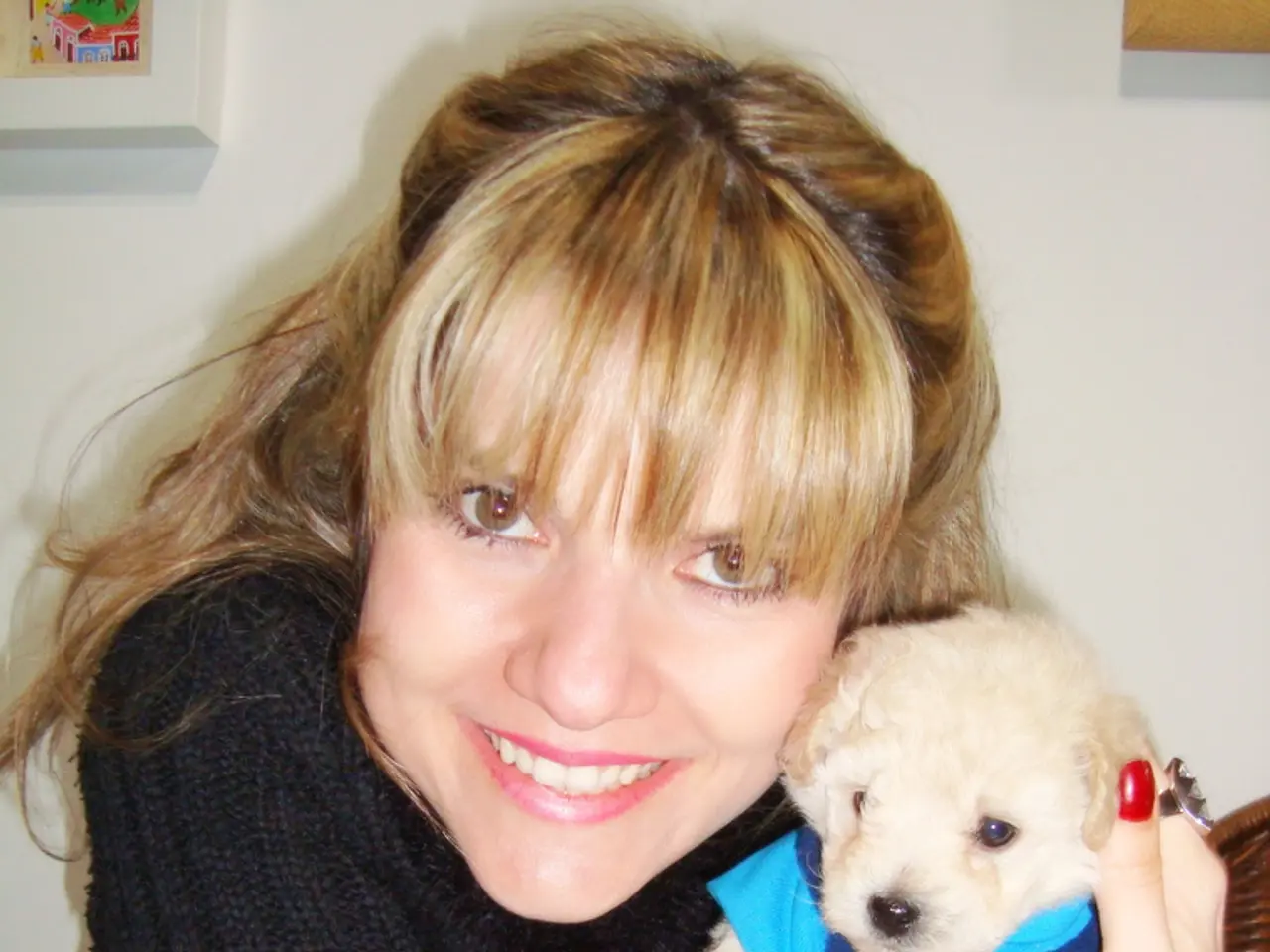Strategies to Prevent Your Dog from Feeling Envy Towards Your Newborn Child
In the exciting journey of welcoming a new baby into the family, it's essential not to forget about our furry friends. Georgia Guerin, the editor of this article, provides insights on how to prepare a German Shorthaired Pointer for the arrival of a new baby, to prevent jealous or anxious behaviors.
Desensitizing Your Dog to Baby-Related Stimuli
One of the key steps is to gradually desensitize your dog to baby sounds, sights, and smells. Start by playing baby crying sounds quietly at first and gradually increase the volume. Introduce baby items such as the pram and Moses basket well in advance, allowing your dog to get used to these new stimuli without overwhelming them.
Maintaining Your Dog's Regular Routine
Disruptions in routine can cause anxiety in dogs. To reduce this, it's important to maintain their regular feeding and walk times. Keeping breakfast, dinner, and walk times consistent helps the dog feel settled.
Providing a Safe Space for Your Dog
Creating a safe space for your dog is crucial. This could be a crate or a designated area using retractable baby gates. By providing a place where they know they won't be bothered by the baby, you're helping them feel secure and comfortable.
Introducing the Baby to Your Dog
Introduce the baby to your dog calmly and on the dog's terms. Use a muslin cloth that smells of the baby for the dog to have a good sniff before meeting the baby. Avoid forcing interactions between the dog and the baby, and always supervise their interactions closely.
Keeping Up with Your Dog's Training
Regular training sessions provide one-on-one time with the dog and help prevent jealousy towards the baby. Training sessions in the garden can be beneficial for both the dog and the baby.
Managing Signs of Jealousy and Anxiety
Signs of jealousy in dogs can include whining, displaying attention-seeking behavior, resource guarding, destructive behavior, and unusual toileting habits. If you notice any concerning behaviors, consult your vet for advice.
Additional Tips
- Treat them to a new toy: New toys can help keep the dog happy and prevent them from stealing baby items.
- Interactive toys can help keep the dog occupied while you're busy with the baby.
- Practicing loose-leash walking with the pram can get your dog used to it before bringing a baby into the mix.
A Word of Caution
Envy can also go hand-in-hand with anxiety in dogs, and they might leave the room when the baby is there or display behaviors such as overgrooming. If any concerning behaviors persist, consulting a veterinarian or professional trainer experienced with dog behavior around children is recommended for tailored support.
A 2024 survey by insurers ManyPets suggested that 36% of parents reported their dog becoming jealous since bringing a new baby home. By following these steps, you can help your German Shorthaired Pointer adjust to the new addition to the family more smoothly.
- Gradually expose your German Shorthaired Pointer to baby-related stimuli such as sounds, sights, and smells to prevent anxious behavior.
- Maintain your dog's regular feeding and walk times to reduce anxiety caused by disruptions in routine.
- Create a safe space for your dog where they feel secure and comfortable, like a crate or a designated area using retractable baby gates.
- Introduce the baby to your dog calmly by using a muslin cloth that smells of the baby for the dog to sniff before meeting the baby.
- Keep up with your dog's training sessions to provide one-on-one time and prevent jealousy towards the baby.
- Monitor signs of jealousy and anxiety in your dog, such as whining, resource guarding, and unusual toileting habits, seeking advice from your vet if necessary.
- Provide new toys for your dog to keep them happy and prevent them from stealing baby items.
- Utilize interactive toys to keep your dog occupied while you're busy with the baby.
- Practice loose-leash walking with the pram to get your dog used to it before bringing a baby into the mix, reducing any potential anxiety or jealousy. As with any significant change in family dynamics, consult a professional if you notice concerning behaviors persisting in your pet.




